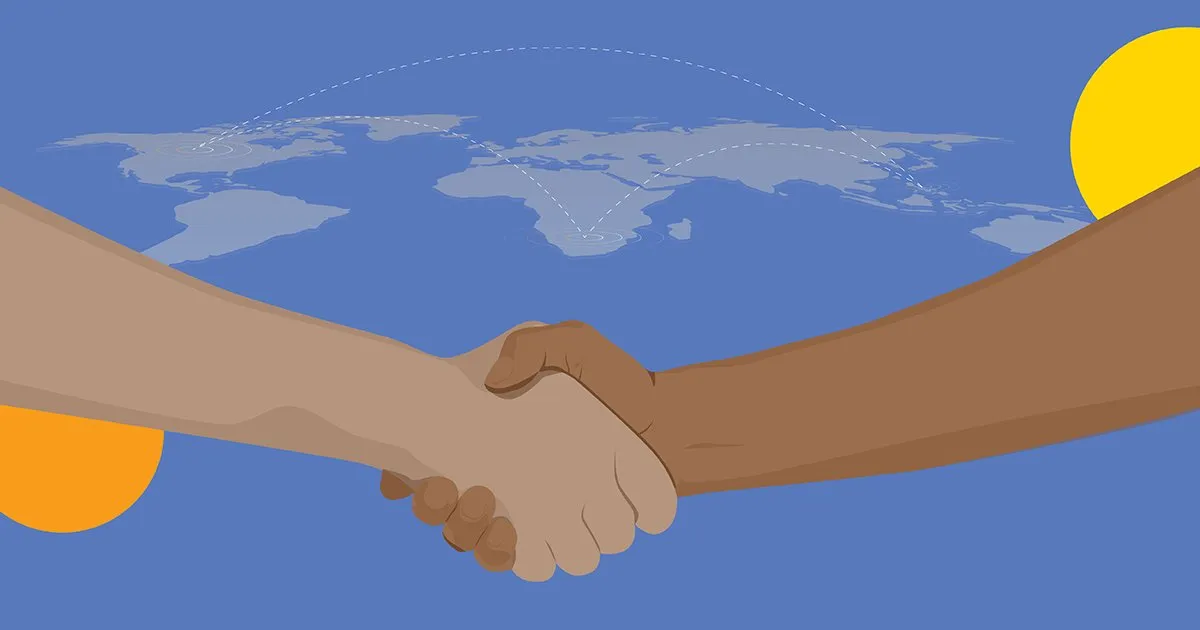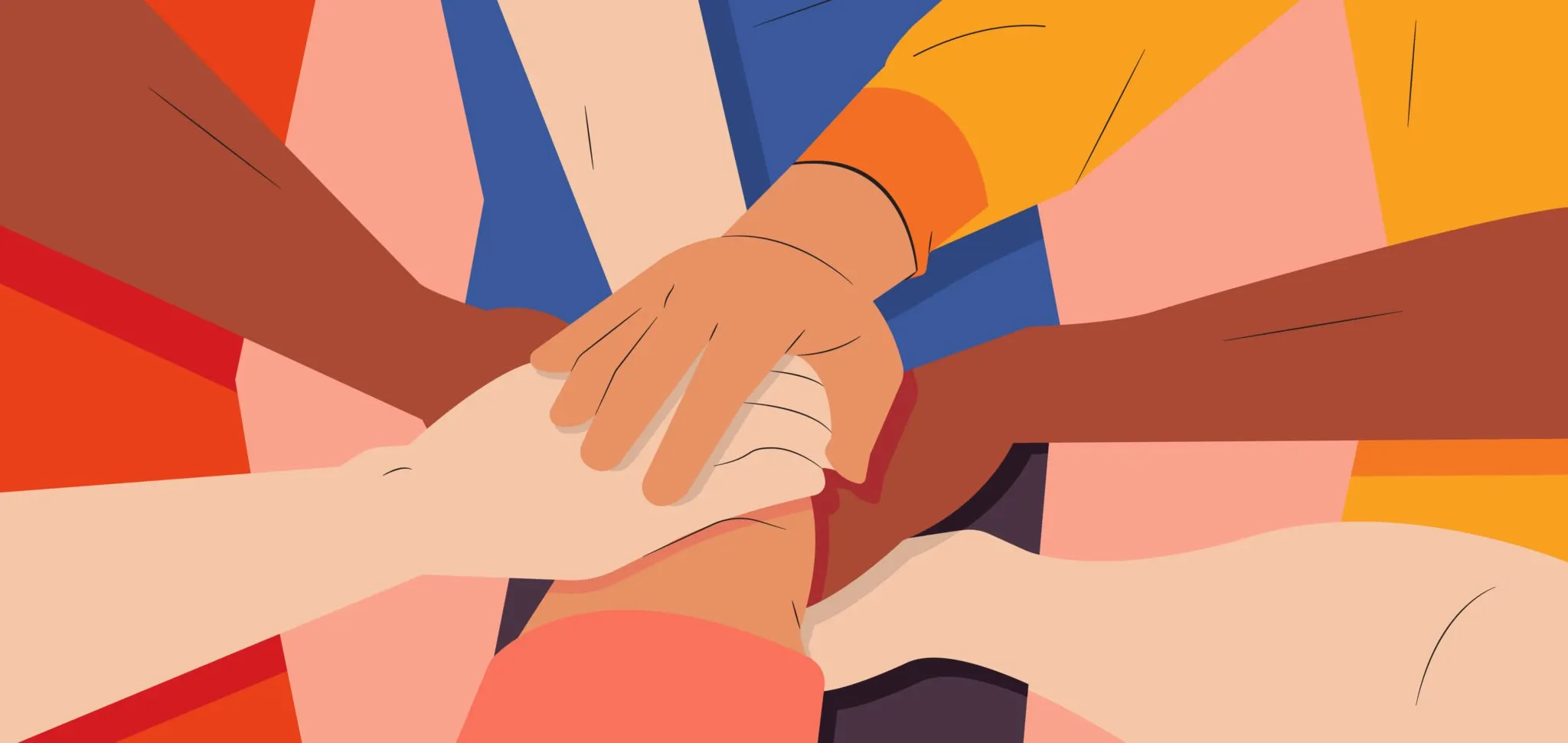How Boldr supports the Sustainable Development Goals through the UN Global Compact
“I moved to the private sector to do more development work” is a line I use unironically whenever I talk about my professional journey. Not just the private sector, but an outsourcing company, which (if you read Why Being a B Corp Matters in Outsourcing) does not have the best reputation for helping society…at least not in recent years. But I made the move to my first private sector job with Boldr in 2019. Given the increasing complexity of global problems, the onus to take action is no longer the job of nonprofits, humanitarian organizations, or the United Nations exclusively.
In other words, creating a regenerative and sustainable world is everyone’s responsibility. There is a growing pressure on corporations and the private sector to ensure their pursuit of profit is not at the cost of people and planet. Companies are evolving beyond traditionally siloed ways of doing corporate social responsibility towards social entrepreneurship or inclusive business models. Whatever the structure, it is important for the private sector to align on key principles and strategies for addressing global issues.
There is also a strong business case for the private sector and investors to consciously move in this direction. In his book Prosperity: Better Business Makes the Greater Good, Said Business School of Oxford Professor Colin Mayer argues that “many companies do not realize the extent to which doing good can be highly profitable as well as socially beneficial” and that “sustainability, customer satisfaction, environmental, social, governance (ESG) mechanisms lead to higher returns, lower risk and lower capital costs”.
This is why Boldr, an outsourcing company, joined the United Nations Global Compact (UNGC) after receiving its B Corp certification in 2021. “The UN Global Compact is known as the world’s largest corporate sustainability initiative and a global movement of more than 12,000 businesses and 3,000 non-business stakeholders across 160 countries” (UN Global Compact Strategy 2021-2023).
Last 1 June, Boldr was also one of the 12,000 business representatives that were part of the UN Global Compact Leadership Summit. We were a small fish in the sea of sustainability leaders from IKEA, L’Oreal, Colgate-Palmolive, TATA Consulting, Ford Foundation, as well as representatives from United Nation agencies such as the United Nations Development Programme (UNDP) and the United Nations Environment Programme (UNEP) to name a few. These stakeholders convened under one mission: to unleash the power of the private sector to accelerate positive change in the world.
While outsourcing may be a small segment among the multinational corporations (MNCs) present at the UNGC summit, being a part of the UN Global Compact enables us to achieve three things for the industry:
We help redefine the private sector into a force that solves global problems
Historically, the private sector has done the planet and people considerable damage in the name of profit. As the world begins to feel the consequences of these practices, the responsibility of reversing these negative effects fall heavily on private sector actors, including and especially actors working in labor-reliant sectors such as outsourcing, manufacturing, and retail.
One of the Summit’s key themes tackled the role of businesses to reduce inequalities by accelerating the living wage agenda, drawing from L’Oreal’s and Woolworth’s own internal application of an acceptable living wage. Both companies currently pay workers in their production chains a living wage and are encouraging more global corporations to do the same. Yet the reality is that companies like L’Oreal and Woolworths continue to be the exception rather than the norm.
We learn from other companies how to become a force for change
Alexandra Palt, L’Oreal’s Chief Corporate Responsibility and CEO, acknowledged that their journey towards applying a living wage was challenging and impossible to do alone, which meant their suppliers and company partners needed to be bought in. This multi-stakeholder effort created a ripple effect among more companies as L’Oreal worked towards ensuring their own external suppliers also applied a living wage.
In a system where the vast majority of stakeholders tend to choose “cheaper” options, L’Oreal, Woolworths, and Patagonia are examples of the private sector consciously solving inequity in the world through their own practices. This resonated strongly with Boldr’s own theory of change this year. We continue to work towards finding and establishing living wage baselines that will enable us to follow suit and pay a living wage.
We align our measurements of success to the Sustainable Development Goals
While each company has its own ways of measuring its social impact in their respective industries, understanding how all these measurements feed into the Sustainable Development Goals (SDGs) provides a framework that shows how we are progressing collectively within the timeframe of the goals. This also presents the breadth and depth of work that goes into various sectors and where our own mission fits in.
Being part of the UNGC means that we commit to delivering the SDGs in the way we do business. Joining the UNGC crystalised Boldr’s place in the SDGs through the creation of Decent and Sustainable Work (SDG 8) and by promoting Quality Education (SDG 4) opportunities as a pathway towards achieving No Poverty (SDG 1). Boldr is keen to achieve these goals alongside other companies committed to a similar mission.
So what does outsourcing (and Boldr) have to do with all of this?
At the core of this is a quest for sustainable solutions to the world’s problems. Boldr’s Theory of Change was designed for the long-run. It envisions an outsourcing industry that generates opportunities, as opposed to exploiting resources. We envision a world where more companies choose to pay a living wage and no longer see profit and purpose as mutually exclusive. Being part of a community of companies across all sectors and sizes that share the same vision is how this can be realized in the fastest way.
Glo Anne Pauline A. Guevarra is the Impact Manager at Boldr. She is currently taking up her postgraduate degree in Labor, Activism, and Development at SOAS University of London.


